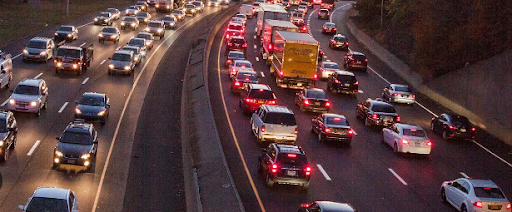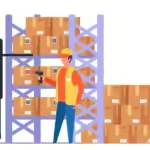Traffic violations, ranging from minor infractions to serious offenses, impact millions of drivers daily. But how are these violations classified within the legal system? Are they crimes? To answer this question, it’s crucial to understand the different categories of traffic violations, their legal implications, and how they relate to criminal law.
Traffic Violations: An Overview
Traffic violations encompass a broad spectrum of behaviors that contravene traffic laws and regulations. They can include:
- Speeding: Driving faster than the posted speed limit.
- Running Red Lights: Ignoring traffic signals.
- Reckless Driving: Operating a vehicle in a manner that endangers others.
- Driving Under the Influence (DUI/DWI): Operating a vehicle while impaired by alcohol or drugs.
- Driving Without a License: Operating a vehicle without a valid driver’s license.
These violations can have various consequences, including fines, points on a driving record, and even imprisonment, depending on the severity.
Classification of Traffic Violations
Traffic violations are generally classified into three main categories: infractions, misdemeanors, and felonies. Understanding these classifications helps determine whether a traffic violation is considered a crime.
Infractions
Infractions are the least severe type of traffic violation. They are typically non-criminal offenses and do not result in a criminal record. Common examples include:
- Speeding Tickets: Issued for driving above the speed limit.
- Failure to Yield: Not yielding to other vehicles or pedestrians when required.
- Parking Violations: Illegally parking in restricted areas.
Infractions usually result in a fine and may add points to your driving record, but they do not involve jail time. The primary focus of these violations is to ensure public safety and compliance with traffic regulations rather than to punish criminal behavior.
Misdemeanors
More serious traffic violations can be classified as misdemeanors. Misdemeanors are criminal offenses but are considered less severe than felonies. They can result in criminal charges, and potential penalties include fines, community service, probation, and jail time. Examples include:
- Reckless Driving: Operating a vehicle in a manner that disregards the safety of others. This behavior can lead to accidents and serious injury.
- Driving Without a License: Operating a vehicle without having a valid driver’s license, which can indicate a disregard for legal requirements.
- Driving Under the Influence (DUI/DWI): Operating a vehicle while impaired by alcohol or drugs. This offense poses a significant risk to public safety and is treated more severely than other traffic violations.
Felonies
In rare cases, traffic violations can escalate to felonies, especially when they result in serious harm or death. Felonies are the most severe category of crimes and carry heavy penalties, including lengthy prison sentences. Examples include:
- Vehicular Manslaughter: Causing the death of another person through negligent or reckless driving.
- Hit-and-Run: Leaving the scene of an accident that resulted in injury or death.
Felonies involve a higher level of intent or negligence and can have long-lasting legal consequences, including a permanent criminal record.
Legal Implications of Traffic Violations
The classification of a traffic violation impacts how it is treated legally and the consequences that follow.
For infractions, the legal process typically involves a ticket or citation just like www.njmcdirect.com payment. The individual may be required to pay a fine or attend traffic school. In some cases, the violation may be contested in court, but the focus is primarily on resolving the issue rather than imposing criminal penalties.
Misdemeanor traffic violations often involve a more formal legal process. The accused may be required to appear in court, and the case may result in criminal charges. Penalties can include fines, community service, probation, and short-term imprisonment. Misdemeanors can also affect one’s criminal record, potentially impacting future employment and legal matters.
Felony traffic violations are treated with the utmost seriousness. The legal process involves criminal court proceedings, and the accused has the right to legal representation. Convictions can result in substantial prison sentences, large fines, and long-term impacts on personal and professional life. Felony charges also carry significant social stigma and long-lasting consequences. It’s essential to get help after a crash because navigating the legal process alone can lead to missed opportunities for a fair defence. Working with a *qualified traffic offence lawyer* can help protect your rights and potentially reduce the severity of the consequences you face.
The Impact of Traffic Violations on Driving Records
Regardless of the classification, traffic violations can affect driving records. Points are often added to a driver’s record for violations, which can lead to increased insurance premiums and, in extreme cases, license suspension or revocation. For residents of New Jersey, using the NJMCDirect system can simplify the process of handling a traffic ticket.
- Points System: Many states use a points system to track traffic violations. Accumulating too many points can lead to penalties such as license suspension.
- Insurance Rates: Traffic violations can lead to higher insurance premiums as insurers view them as indicators of higher risk.
- License Suspension: Serious or repeated violations can result in the suspension or revocation of a driver’s license, affecting an individual’s ability to drive legally.
Preventative Measures and Best Practices
To avoid traffic violations and their consequences, drivers should adhere to best practices:
- Obey Traffic Laws: Adhering to speed limits, traffic signals, and other regulations helps prevent violations.
- Avoid Distracted Driving: Staying focused on driving reduces the risk of accidents and violations.
- Stay Informed: Understanding local traffic laws and regulations helps ensure compliance and avoid unintentional violations.
Conclusion
Whether a traffic violation is considered a crime depends on its classification. Infractions, which are the most common, are generally not considered crimes but can result in fines and points on a driving record. Misdemeanors are more serious and can lead to criminal charges and penalties, while felonies involve severe offenses with substantial legal consequences.
Understanding the classification and potential impact of traffic violations helps individuals navigate the legal system and make informed decisions about how to handle and prevent such issues. Whether facing a minor infraction or a serious offense, awareness and proper legal guidance are key to managing traffic violations effectively.


